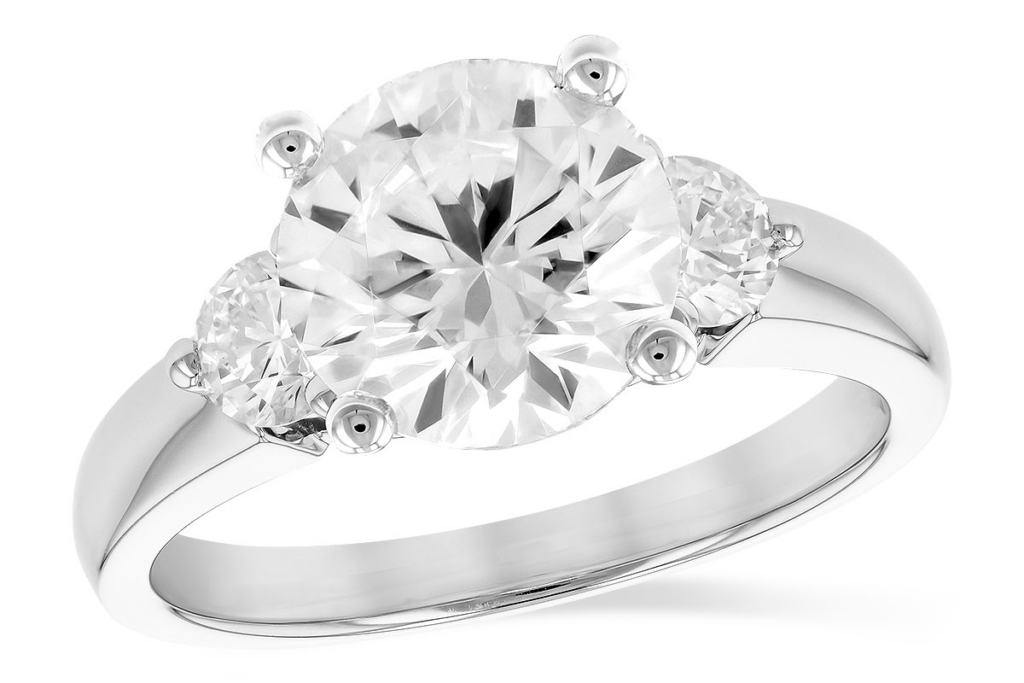When looking at your gold coins, rings, earrings, necklaces, and other gold jewelry, one may wonder if they are magnetic. Although the simple answer is no, there is more to whether gold is magnetic. Learn more about the magnetism of this precious metal.
Related post: Is platinum magnetic: why is my platinum jewelry sticking to magnets and other questions about Platinum Jewelry
Can Gold Stick to a Magnet?
Pure gold on its own cannot stick to a magnet. However, if you have an alloy of gold, then it could stick to a magnet. An example of a gold alloy that may stick to a magnet is gold with over 20% of its atoms replaced by iron. In very cold temperatures this alloy of gold may magnetize all on its own.
Will gold of different karats stick to a magnet? Gold jewelry, such as 18k gold, 14k gold, 10k gold, and even white gold can be magnetic depending on the alloys, or metals combined with gold, used.
If you think your gold coins or jewelry are pure gold, you can put them to the test by seeing if they are magnetic. If they stick to another metal, there’s a good chance your gold item isn’t pure gold. Instead, it may have iron or nickel inside of it. Keep in mind that although it isn’t magnetic, it still may not be pure gold. You may have a piece made of copper, lead, or aluminum with a gold coating.
Can You Make Gold Magnetic?
Although pure gold is not magnetic all on its own, there is a way to make it temporarily magnet. You can do this by placing it in a strong magnetic field. Within this magnetic field, the gold can become slightly magnetic. Since we don’t encounter such strong magnetic fields in our everyday lives, it’s safe to say that pure gold is not magnetic.
Why Do Jewelers Add Other Metals to Gold?
Since pure gold is a soft and malleable metal, jewelers often mix other precious metals with it to make the jewelry more durable, harder, and less likely to bend and scratch. They may also mix other metals such as platinum, copper, or nickel to give the piece of jewelry a different color.
Is Silver Magnetic?
Like gold, silver is not magnetic. You can use a similar process of placing it in a strong magnetic field to make it slightly magnetic. Knowing that silver is typically not magnetic can help you determine if you have real silver. If it sticks to a magnet, then it is some other kind of metal.
What Kind of Metals Are Magnetic?
When these metals are combined with gold, it may make the piece (gold jewelry or gold bullion/nugget) magnetic. What metals are attracted to magnets?
Cobalt, iron, nickel, neodymium, samarium, and gadolinium are all magnetic metals.
Cobalt is commonly used in aircraft engine parts, batteries, and coloring for ceramics and glasses.
Iron is used to make steel for manufacturing and construction.
Nickel is typically used to plate other metals to avoid corrosion. You may see it in coins or jewelry. Many manufacturers use it to make alloys such as stainless steel that is used for household appliances.
Read: Choosing the Best Metal for your Wedding Bands or Engagement Ring
One of the most common uses for neodymium is in an alloy with boron and iron to make permanent magnets. A permanent magnet is a magnet that keeps its magnetic properties without a current or inducing field. You may find them in mobile phones, microphones, electronic instruments, and loudspeakers.
Samarium is often combined with cobalt to make incredibly powerful magnets. They are commonly used in microwave applications since they can stay magnetic at high temperatures. These magnets also made devices such as headphones and personal stereos possible.
Gadolinium is quite useful in different alloys. Its common uses are in electronic components, magnets, and data storage disks. Its compounds are also used in magnetic resonance imaging (MRI), especially for the detection of cancerous tumors.
What Kind of Metals Are Not Magnetic?
In their pure, natural forms, gold, silver, aluminum, copper, brass, and lead are not magnetic. This is because they are all weak metals. Adding iron or steel to these metals can make them stronger and magnetic.
Gold is often used in coins, jewelry, electronics, dentistry, aerospace, and awards. You may find silver in jewelry and coins as well. It is also used for tableware, mirrors, and anti-bacterial properties.
Aluminum is often used to make cans, kitchen utensils, foils, beer kegs, window frames, and even airplane parts. Copper is of course used for the penny, but you also may find it in electrical equipment since it is known for its conductivity. Brass is the metal of choice for many musical instruments, but it also is used in alloys for the transport of water.
Read: Choosing the Best Metal for your Wedding Bands or Engagement Ring (Part 2)
Lead used to be used widely in different materials such as paint, hair dyes, and piping. Since the discovery of its toxicity, these uses have long been banned. Today, it is still used in car batteries and to store corrosive liquids.
Why Can a Metal Detector Find Gold?
Since gold is not magnetic in its pure form, you may wonder how a metal detector finds it. First off, not every type of metal detector can find gold. If your metal detector runs at lower frequencies, it may not find gold due to its low conductivity. However, metal detectors with a high frequency may be able to find gold. This is because gold has better conductivity with high-frequency waves. Although they are quite expensive, multi-frequency and PI-type metal detectors are the best for finding gold.
How Do Magnets Work?
The science of magnets is a bit complicated, but to put it simply, a magnet is an object that attracts iron and other materials. A magnet can generate a magnetic field around itself. Magnets have two poles, referred to as the north and south poles. These two poles exert forces on each other. Poles that are the same repel each other, while poles that are different attract. When two metals stick together, this means that have different poles.
Now that you know a little bit more about gold and that it is not magnetic, you can start to test whether your jewelry or coins are made of pure gold. You may discover that they have magnetic metals mixed in with them. If you have any other questions about gold or other precious metals, give us a call or fill out our online email contact form.



